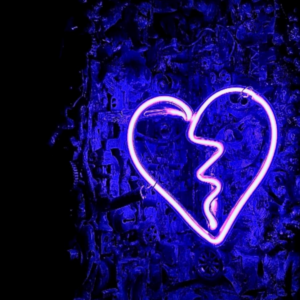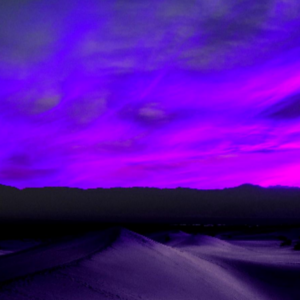I’m ready to make my getaway.
The stars shine a beckoning pathway through the sand, one I yearn to follow into the darkness, into adventure, into a place where I can dream and rest and be. I push up my bedroom window, letting the fragrant desert breeze calm me and also claim me. The night whispers sweet nothings like a lover.
I have one foot out the window when I hear footsteps. I dive back into bed, pulling the covers up to my neck to cover my jeans and t-shirt. My bedroom door creaks open and my mother, outlined in shadows, peeks in. I nuzzle my pillow, let out a fake dreamy sigh.
“I know you’re not asleep, Nisha.”
Ugh. I really don’t want another pep talk from her.
“Come on, I know you’re not excited about your first day tomorrow. But you’ll be a senior—only one more year to go. Then you can leave all this behind.”
“Like you did?”
“I chose to come back.” She sighs. “I know you don’t like this town, but I’m really doing incredible work at the observatory.”
“That’s great for you. I miss LA.”
The desert breeze rustles in our hair, an almost sentient thing. Mom looks startled, and she hurries to the window, peering out into the darkness. “I’ve told you not to leave this thing open. It’s not safe.”
I roll my eyes, playing the part of the unflappable teenager even if I don’t feel like one. “Don’t be paranoid. No one’s going to break in.”
She lingers at the window, inhaling deeply. There’s such a look of longing on her face, I almost don’t recognize her. For a moment, she’s someone else. Not a scientist, not a mom. Just a girl, wistful and dreaming.
Then, she shakes it off. Firmly shuts the window. Locks it. “I don’t want anything to happen to you.”
“Are you going on about that weird stuff again? That kids get driven out of their minds and get lost there?” I pretend to scoff. I’m not about to admit anything to her. Maybe I don’t want to play it safe.
“Just keep it closed.” She presses a kiss to my damp forehead. “Blueberry pancakes tomorrow morning, ’kay?”
“Okay,” I mumble. She’s made blueberry pancakes every first day of school that I can remember, but the returns are definitely diminishing.
Just one more year. One more year of the girls who borrow my math notes, but also make fun of my clothes and never invite me to their parties. One more year of the boys who say my brown skin isn’t pretty but beckon me into the backseats of their cars. One more year of the parents who pay me to tutor their teens but never ask if I’ll stay for dinner.
When mom finally stops fussing, I count to a hundred. And then I open the window again. The truth is that the call from the desert has been growing stronger.
There’s a heartbeat out there.
A pulse.
The steady inhalation and exhalation of a conscious being.
Sure, when I first moved here a year ago, I thought all those warnings were based on a silly local myth. But over the past few months, the call from the arid wilderness has been growing stronger—uncanny and insistent.
A heartbeat that wriggles into my eardrums.
There are PSAs plastered all over the school: people have gone missing. But no one can explain why they left the safety of their air-conditioned homes.
So when I slip through the window, I know that it’s not a great idea. But from my fingers to my toes, from each of my awkward gangly bones, every bit of me demands I do this. I creep like a vine along the sloping porch awning, over the garage, down to the place where our neighborhood abruptly ends and the desert wilderness begins.
The heartbeat thrums.
Starlight twinkles on moonstones along a secret night path meant only for me. I walk for hours in the darkness, time curling and bending and stretching out like a plane. The chirping of crickets and the scurrying of nocturnal creatures through grass muffle my footsteps, and I’m sweaty and itchy and kind of cold by the time I come across the battered, opalescent rocket ship shimmering under the night sky.
The heartbeat is coming from the ship.
I don’t know what others were searching for out here among the scrubs. I don’t know what they found. I don’t know what took them away. But I do know that this abandoned piece of machinery that can travel to the stars is mine, all mine. It has to be.
It looks nothing like NASA’s rovers, and I know that even if I search, I won’t find it stamped with any official-looking serial numbers or labels. This beauty was made to fulfill a wish, not a government contract.
Succulents have grown up around it, desert blooms creeping on vines over the hatch. Thorns prick my fingers as I try to scrape them off. Bleeding a little, I manage to pry open the small cockpit. Inside, there’s space for only one person, but whoever flew this thing is long gone.
The heartbeat I’d felt is the ship’s internal workings, the wires and circuits of a mythical winged beast.
I crawl into the seat, run a hand over the controls. A flight path to the moon has been laid out. I press a few buttons, flip a switch. A recording plays, a woman intoning the date of her launch, a date nearly fifteen years ago.
I know that voice.
#
Her body takes up space.
With tiny brown limbs and tangled dark hair, she and her cousins run to the rooftop to play house in the morning sunshine as the grownups sip chai and gossip downstairs in the shade of the cool house, frogs and lizards scampering in and out of the open-air living room, a breeze blowing in from the courtyard with rustling mango trees and the deep well she once nearly fell into when she tried to scoop out the moon.
Her body takes up space.
At a new school, in a new land, snowflakes scatter like moondust in her hair during recess and frightened foreign syllables spill from her lips, her accent carrying with it the singalong melodies of her birthplace where temperatures never froze the skies but heat could boil your skin; yet here her teachers only laugh at the little immigrant girl who has never before seen something so ordinary.
Her body takes up space.
Curves and hair in all the wrong places, she hugs knobby knees as the boy in the lifeguard red shorts struts past the kids scrambling into the pool and the scent of sunscreen and chlorine wafts in the glimmering heat—and she expects him to gaze right past her as most boys do but he doesn’t have their blond hair or pinkish skin and his dark night eyes are on hers and his dimple is showing and he asks her a question but she’s too caught up in her wrong curves and wrong hair to even begin to answer.
Her body takes up space.
She tap tap taps on a keyboard, biting her lip and sipping coffee and creating clean lines of dancing elegant code that will take spacecraft to the edges of the solar system and beyond, headphones and an oversized expensive monitor to help her drown out an office teeming with foosball and video games and deep voices much louder than hers, voices assured in their inherent volume merely because of the outsized spaces their speakers take.
Her body takes up space.
She is seven months along and taking up more space than ever but is also radiant like the light of the moon she was named for and the crib is waiting with stars strung above, the family on both sides eager for new life and vitality, advice dispelled like chai and chaat on one branch, like wine and cheese on the other, and obviously they only want what’s best for her health her body and the fetus growing within.
Her body takes up space.
That pesky immune system is attacking things it shouldn’t attack and now she can’t work and she can’t parent and she can’t eat and the meds aren’t really helping and the doctors are shrugging and yet she still needs to work and she still needs to parent and she still needs to eat but her body refuses to do what it’s supposed to even when she’s trapped within it.
Her body takes up space.
On a restricted diet, she doesn’t partake in the pumpkin pie or boozy coffee as in-laws crowd past her empty moon of a plate, focused on the charming dark-haired toddler that is the perfect combination and why won’t you let her stay up late and we want to spend more time with her and you don’t need to use that tone and we thought your culture valued elders and aren’t you glad you live here and not in that backwards place and why are you speaking again and what makes you think you know what is best for her and why do your ideas take up so much space and we don’t need you; we can take care of her so you may go now.
Her body takes up space.
Walls are built and children crowded in cages and visas slashed and bans implemented and no we’re not discriminating against your religion your skin color your heritage and no your kids can’t have free lunch and no you’re not really one of us and why don’t you take your unwanted body back where you came from but also we want you to pick our oranges and we want you to test our code and we want you to clean our homes but we don’t want your families because that is chain migration and we fear your dark colors will bleed into ours and we fear you are the end of us because we are defined by our skin and our bodies and the mythos of our glorious past.
Her body takes up space.
It takes up too much of it, and she has to find a way to take up less so she constructs a rocket with enough fuel for her and her baby to fly off into disinterested solitude, to survive in the peaceful craters of the moon where their weight would be diminished, and perhaps she can even create the technology to compel that rogue moon to break from the forces of a planet with a fixed path—and yet yet yet when they launch into moonlight, a cry tugs her back to solid earth.
Her daughter’s body deserves to take up space.
#
The engine roars to life, even after fifteen years of neglect. I knew it would; my mother is something of a genius. I knew her story, most of it anyway. But I didn’t know it.
And it’s my story too: we are a line, a continuum, with not enough change through the winding years. I was just two years old when Mom reached her breaking point. When Mom nearly flew away with me. Tonight, the desert quietly pulses with both our secrets, along with the secrets of so many others who have come out here searching for something under the vast reaches of the stars. We came to scream and to shout and to cry, to thrust our frail human bodies in a space that can survive just fine without us. To find the things we need to find. What the other missing people found I will never know, but it took them away from this town. To bigger and better worlds, I hope.
The rocket ship has everything I need ready to go, little moon seeds of a new life waiting to be planted. An escape pod, meant for us—but now it’s here for me alone.
I press a button, the button. Has there always only been one button? In moments we are lifting off—me and the beating heart of the rocket ship and a recorded voice from fifteen years past. As we prepare to exit the Earth’s atmosphere, I have a few seconds left to make an irreversible decision. I could shut off the thrusters, drift back down. Face my senior year.
Take up space.
Or I could keep soaring out into the beautiful starlit darkness. A moonlit life of solitude and poetry and a whole lot of thoughts swirling around in my head with no one to share them with.
Only a ship with a beating heart.
I have only a few seconds to decide who I want to be, where I want to be, where I might possibly belong.
10, 9, 8…




